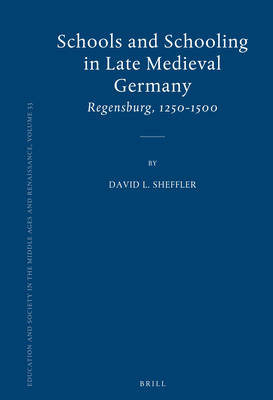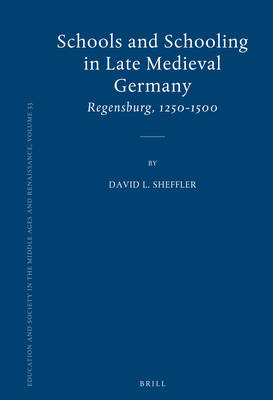
- Afhalen na 1 uur in een winkel met voorraad
- Gratis thuislevering in België vanaf € 30
- Ruim aanbod met 7 miljoen producten
- Afhalen na 1 uur in een winkel met voorraad
- Gratis thuislevering in België vanaf € 30
- Ruim aanbod met 7 miljoen producten
Zoeken
€ 297,95
+ 595 punten
Omschrijving
Historians have traditionally studied late medieval education backward - through the eyes of religious and political reformers critical of that which preceded them. This has led to significant distortions. Histories written from this perspective, tend to overemphasize the novelty of early modern educational reforms at the expense of evident continuities, and focus on conflict between ecclesiastical and lay authorities rather than cooperation. This book focuses instead, on the medieval experience of education through a detailed reconstruction of the educational landscape of late medieval Regensburg. The resulting picture provides new insights into the relationship between civic authorities and ecclesiastical institutions, the role of education in social and economic mobility, and the connections between local communities and broader European educational structures.
Specificaties
Betrokkenen
- Auteur(s):
- Uitgeverij:
Inhoud
- Aantal bladzijden:
- 417
- Taal:
- Engels
- Reeks:
- Reeksnummer:
- nr. 33
Eigenschappen
- Productcode (EAN):
- 9789004166646
- Verschijningsdatum:
- 4/06/2008
- Uitvoering:
- Hardcover
- Formaat:
- Genaaid
- Afmetingen:
- 165 mm x 241 mm
- Gewicht:
- 839 g

Alleen bij Standaard Boekhandel
+ 595 punten op je klantenkaart van Standaard Boekhandel
Beoordelingen
We publiceren alleen reviews die voldoen aan de voorwaarden voor reviews. Bekijk onze voorwaarden voor reviews.








